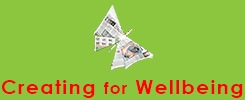Critical Friends
When artists and artist co-ordinators begin to work within school communities, they are in an “outsider” role. Understanding this role through the lens of the Critical Friend Facilitation Framework can help to navigate relational obstacles and milestones including: making initial contact, building relationships, negotiating the partnerships, finding points of synergy, establishing teams and nurturing relationships.
The Critical Friend Facilitation Framework, along with a description of the role and a range of activities to use with school communities, is available in Butler, H., Krelle, A., Seal, I., Trafford, L., Drew, S., Hargreaves, J., Walter, R. & Bond. L. (In press) The Critical Friend: Facilitating positive change in school communities. Camberwell: ACER Press (available May 2011).
What is a Critical Friend?
The role of Critical Friend as a facilitator of change has become an important component of a range of school improvement, health promotion and professional learning initiatives in school communities. The role of the Critical Friend is a dynamic one, requiring a high level of skill, flexibility, and professional judgment. Rather than following a checklist of scripted “technical assistance”, it is about developing a repertoire of strategies and skills, and learning when and how to use them, taking account of the particular context.
The Facilitation Framework (developed from reviewing almost a decade of work across three projects), is how the Critical Friend does the work. Far from being a neatly sequenced approach, the facilitation processes are often much messier, overlapping simultaneously and being revisited at different times during different phases of the change cycle. The Facilitation Framework seeks to illustrate these overlapping activities, organised both by time (Getting In, Getting On With It, Getting Out) and by the nature of the activity (Clarifying Concepts, Nurturing Relationships and Facilitating Processes).
Critical Friends Facilitation Framework
Effective Critical Friends draw on a repertoire of actions, depending on the context, participants and phase in the change process at any particular point in time. This framework helps identify what type of action might be required by the Critical Friend and those with whom they are working at a particular point in a project. Importantly, particular actions may be appropriate at multiple points in the process, as indicated by the multidirectional arrows.
|
Clarifying CONCEPTS |
Nurturing RELATIONSHIPS |
Facilitating PROCESSES |
|||
GETTING IN (introducing, establishing) GETTING ON WITH IT (activating, planning, implementing) GETTING OUT (embedding, sustaining) |
Identifying goals & clarifying expectations Examining the conceptual framework Clarifying the aims & objectives of the project Acknowledging the complexity of school settings Developing shared beliefs & understandings Promoting flexibility & adaptability Understanding competing demands & modelling collaboration Reiterating goals & expectations Exploring evidence-based practice Using local data for insight into local issues Challenging assumptions & orthodoxies Advocating active reflective practice Promoting change as a dynamic process Planning for transition & building sustainability Identifying unexpected learnings Celebrating achievements & milestones |
Building relationships with & amongst leadership & project teams Building relationships with & amongst school community Identifying & meeting other potential stakeholders Building trust & establishing credibility across the school community Demonstrating respect for school culture & ethos Cultivating & nurturing a supportive environment Building & supporting project teams Paying attention to staff wellbeing & morale Consulting with the broader community Encouraging, enabling & supporting project team Acknowledging the interests & recognising the strengths of different staff Facilitating deep conversations Planning for & negotiating departure Openly honouring & appreciating relationships amongst the team Recognising contribution of individuals & collective effort |
Negotiating roles & boundaries of responsibility Observing school culture & identifying strengths and opportunities Building capacity within school community Clarifying & negotiating a local agreement or memorandum of understanding Reviewing school policies, structures, practices & processes Gathering, interpreting & reflecting on local data Sharing knowledge & expertise Fostering critical inquiry Developing a strategic plan with targets & timelines Building expertise through professional learning Identifying barriers & enablers to progress Resourcing through information, ideas & insights Monitoring the progress of strategies & any other changes Developing ways for maintaining momentum Reviewing processes & evaluating strategies Embedding changes into policies, structures, practices & processes |
||
